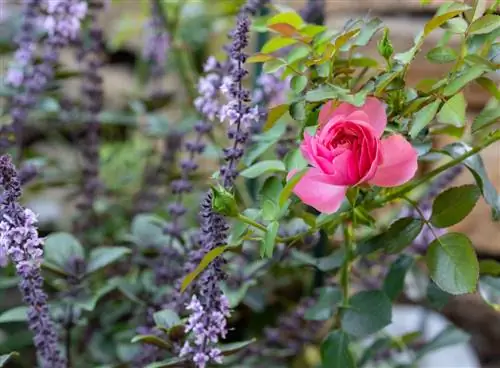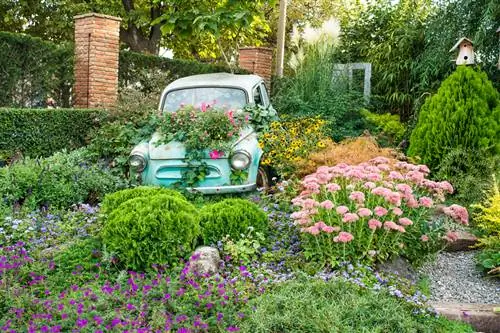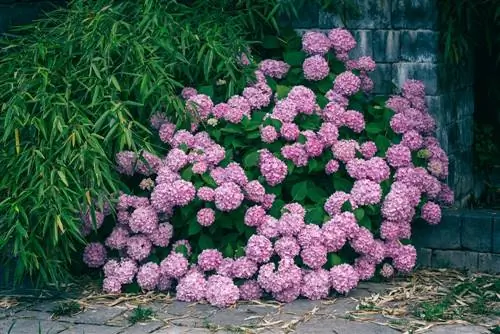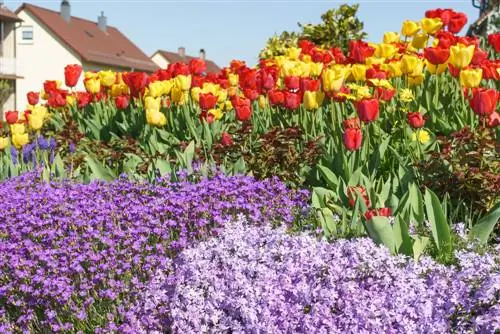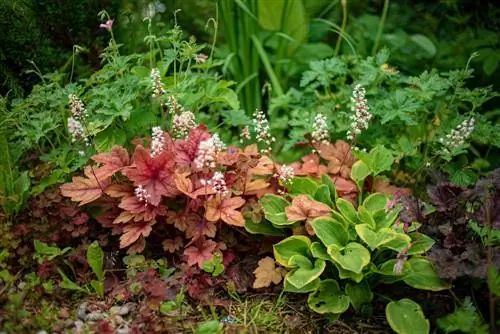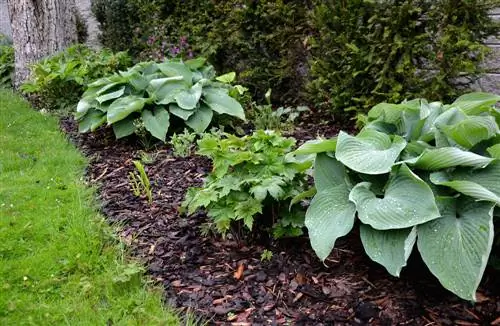- Author admin leonars@hobbygardeners.com.
- Public 2023-12-16 16:46.
- Last modified 2025-01-23 11:22.
This wondrous mint family easily defies heat and drought, which is why it is becoming increasingly popular in dry summer regions. But which plants can the blue rue interact with? Below you will learn how to combine them correctly.
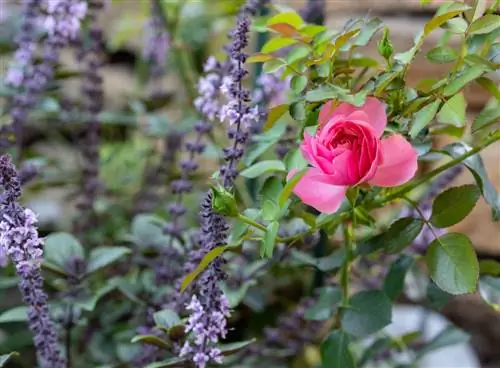
Which plants can be combined well with the blue rue?
In order to successfully combine the blue rue, you should choose companion plants with similar location requirements such as a sunny location and calcareous soil. Suitable plants include roses, catnip, lavender, ornamental grasses, cistus, spurge, autumn asters and prairie sage.
What factors should you consider when combining the blue diamond?
For unique combinations with the blue rue, you should consider the following factors when choosing companion plants:
- Flower color: white or violet
- Flowering time: July to October
- Site requirements: sunny, well-drained and calcareous soil
- Growth height: up to 150 cm
Thanks to the long flowering period, the blue rue can be combined with numerous other plants that are in bloom from mid-summer to autumn. However, the flower color of the blue diamond should match that of other plants or even form an attractive contrast.
Companion plants for the blue rue should also feel comfortable in a sunny location. In addition, it is advisable to only include plants in the narrow selection that prefer calcareous soils.
When combining with the blue rue, remember that this subshrub can grow up to 150 cm high. This means that smaller or much taller plants are particularly suitable for the blue rue.
Combine blue diamond in the bed or in the bucket
The delicate and airy appearance of the blue rue is best showcased with plants that appear completely different, but at the same time create a kind of visual synergy with the blue rue. Drought-loving perennials such as catnip and prairie sage are also wonderfully suitable, as they place similar demands on the location. The blue diamond also looks fantastic next to ornamental grasses and various roses.
The following, among other things, harmonize with the blue diamond:
- Roses
- Catnip
- Lavender
- Ornamental grasses such as feather grass, switchgrass and quaking grass
- Rockrose
- Spurweed
- Autumn Star
- Prairie Sage
Combine blue diamond with roses
The blue rue blends in beautifully in the background of floribunda and shrub roses. Their silvery-green leaves and mostly blue-violet flowers form the perfect counterpart to yellow-flowering roses. The delicate flower spikes swing carefully behind the roses and make the yellow shine even more vividly thanks to the resulting contrast. White roses can also be combined with the blue diamond.
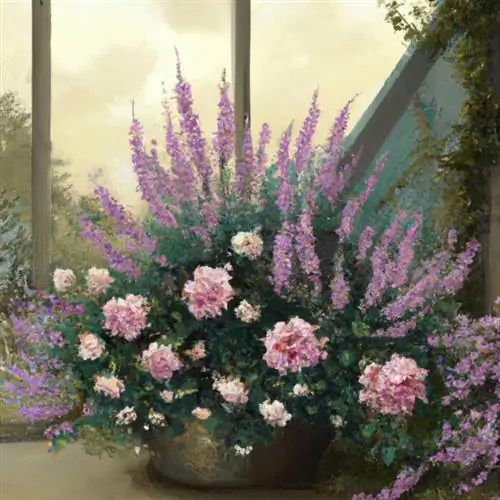
Combine blue rue with catnip
As a sun worshipper and a typical plant for steppe gardens, catnip is ideal for interaction with blue rue. Since the two look visually similar, a balanced and calm composition is created.
Combine blue rue with feather grass
The blue rue can stand in close proximity to the feather grass. These two like sunny and dry locations. Higher types of feather grass can be found in the background of the blue rue. Species that grow tall in a similar way to the blue rue should rather stand hand in hand with the blue rue. The flowers of the feather grass will make the flowers of the blue rue sparkle in midsummer.
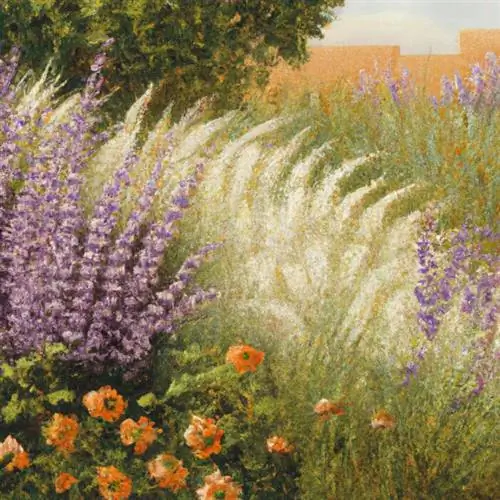
Combine blue diamond as a bouquet in the vase
In a bouquet of flowers, the blue rue doesn't take the lead so much as it represents a simple companion. For example, it surrounds roses, autumn asters and yarrow. An additional bit of feather grass gives the overall expression of the bouquet something dynamic.
- Roses
- ornamental onion
- Yarrow
- Ball Thistle
- Autumn Star
- Feather grass

